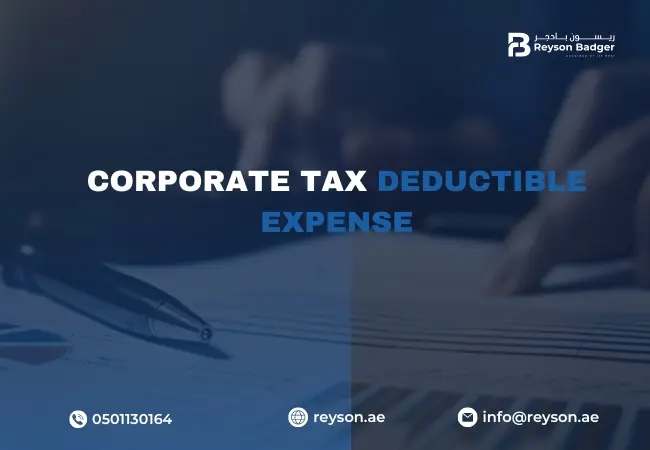
Federal Corporate Tax Law of the United Arab Emirates by its passage heralds a new era for this country on the matter of taxation, focusing on economic growth, transparency, and compliance. It shall apply to financial years beginning on or after June 1, 2023, and enforce a new federal corporate tax regime across different sectors in the country. This is about knowing what types of expenses could be deducted and hence whose tax liability could be reduced. Accurate determination of deductions of expenses will result in tax minimization, maximization of financial performance, and compliance. This page explains deductible expenses under the UAE Federal Corporate Tax Law from the view of the type of expenses eligible, conditions for deductibility, and special considerations to help businesses make the right decisions.

Direct costs encompass the expenses that are directly assignable to the production of goods or services. These costs are essential for the day-to-day functioning of a business and typically include:
Indirect costs, also known as overheads, are expenses that are not directly tied to a specific product or service but are necessary for overall business operations. Examples include:
Certain specific expenses are generally recognized as deductible under tax law, including:
To qualify as deductible, expenses must be incurred solely to generate income or conduct business activities. Personal expenses or those not directly related to business operations cannot be claimed.
Proper documentation is essential for substantiating claims for deductible expenses. Businesses should maintain:
Deductible expenses must not be capital expenditures. Capital expenditures typically involve significant investments in assets that provide long-term benefits (e.g., purchasing machinery or property). Instead, deductible expenses should relate to the operational costs incurred within a financial year.
Certain expenses may be explicitly disallowed by tax legislation. Common examples include:
Expenses that are personal and not incurred for business purposes are disallowed. This includes costs related to personal travel, family expenses, and any other expenditures that do not directly contribute to the generation of business income.
While some entertainment expenses may be partially deductible, many jurisdictions impose strict limitations or outright disallow these costs. For example:
Any fines or penalties incurred due to violations of laws or regulations are typically disallowed as deductible expenses. This includes traffic fines, regulatory penalties, and other legal fines. Tax authorities view these as costs resulting from non-compliance rather than legitimate business expenses.
Interest expenses on loans taken out for personal reasons or unrelated to business activities are not deductible. Only interest on loans used to finance business operations or investments in income-generating assets can be claimed.
While charitable donations can sometimes be tax-deductible, many jurisdictions have specific rules governing these contributions. In general:
Special Considerations
Provisions for future liabilities (e.g., bad debts, warranties) may be deductible if they meet specific criteria set by tax regulations. However, businesses must ensure that these provisions are reasonable and justifiable.
Depending on local tax laws, businesses experiencing losses can carry these losses forward to offset future taxable profits. This mechanism allows businesses to reduce their tax liability in profitable years.
In some jurisdictions, companies within a corporate group may benefit from group relief provisions that allow them to offset profits and losses among group members. This can result in reduced overall tax liabilities for the group as a whole.
Maintaining accurate records is crucial for substantiating claims for deductible expenses and ensuring compliance with tax regulations. Proper record-keeping helps businesses:
To support claims for deductible expenses, businesses should retain the following documentation:
Inadequate record-keeping can lead to several negative consequences:
Allowable Deduction under UAE Corporate Tax Law: Companies look at the minimum tax liability under this head. That is to say, it helps companies infer the eligible deductions. So, proper record-keeping and documentation become indispensable. Professional advice is required for proper compliance and not to miss any tax planning opportunity.
Tax Professional for your Business: At Reyson Badger, business owners have seasoned tax professionals who can offer bespoke solutions to navigate the complexities of UAE tax laws. Protect your business and maximize deductions talk to Reyson Badger today. With the expert guidance of Reyson Badger, remain ahead of UAE tax compliance.